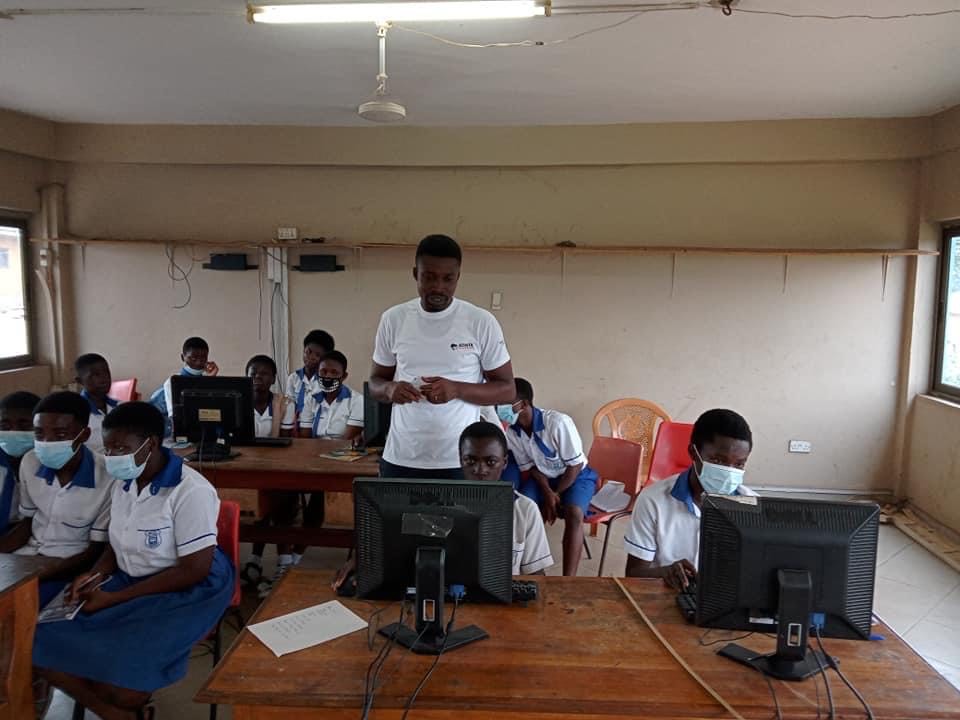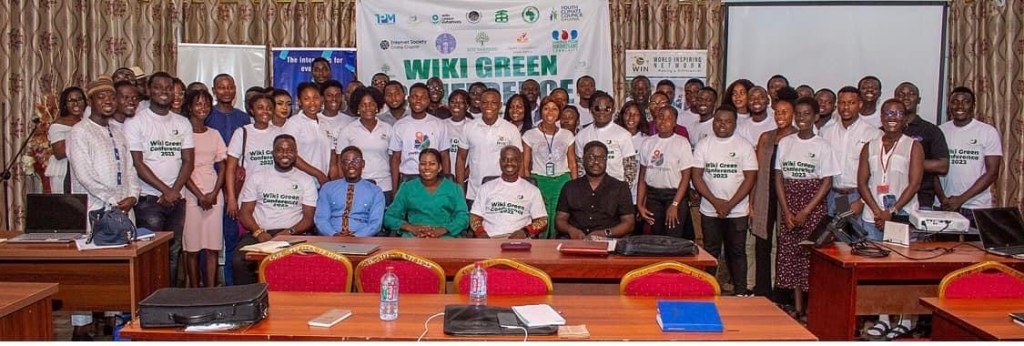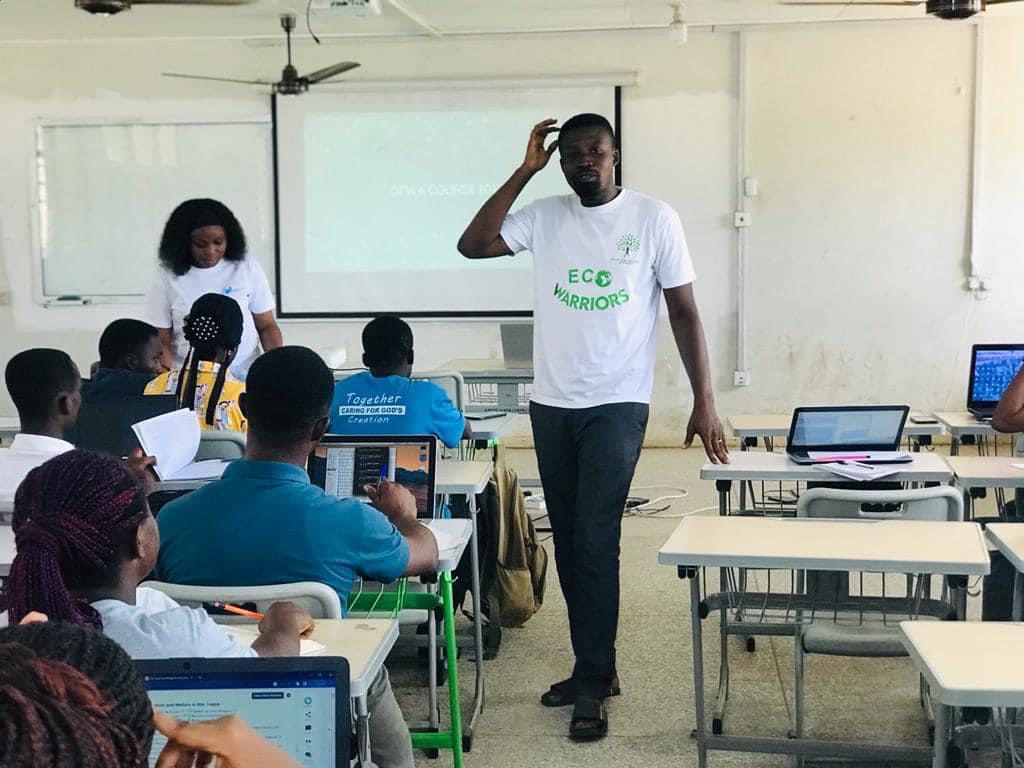Introduction:
The challenge of climate change requires a collective and innovative response from all corners of the world. The open movement, characterized by its emphasis on collaboration, transparency, and accessibility, presents a potent avenue for addressing climate change, especially in the Global South. This essay explores how the open movement, exemplified by initiatives like Wikipedia, can be leveraged to enhance climate education and awareness in regions that are disproportionately affected by climate change.
1. Wikipedia as a Catalyst for Climate Education:
Wikipedia stands as a prime example of the open movement’s ethos. Its collaborative nature allows individuals from diverse backgrounds to contribute, edit, and curate content. This platform can serve as a powerful tool to improve climate education in the Global South. By creating and translating climate-related articles into local languages, communities can access accurate information that’s relevant to their specific contexts. Such localized content not only fosters understanding but also empowers individuals to make informed decisions about environmental conservation.
2. Democratizing Access to Knowledge:
In many parts of the Global South, access to quality educational resources remains a challenge. The open movement can bridge this gap by making climate-related information available to a broader audience. By uploading open-access research, reports, and educational materials onto platforms accessible to all, the movement ensures that individuals, regardless of their economic or social background, can engage with scientific knowledge critical for addressing climate change.
3. Fostering Collaboration and Innovation:
The open movement encourages collaboration between experts, policymakers, and communities. In the Global South, where resources might be limited, this collaborative approach can lead to innovative solutions. Online platforms enable knowledge sharing, the exchange of best practices, and the co-creation of sustainable strategies that cater to local needs and realities.
4. Empowering Local Voices:
The open movement amplifies the voices of individuals who are often underrepresented in global discussions. In the context of climate change, this means providing a platform for indigenous communities, local activists, and vulnerable populations to share their experiences, observations, and solutions. By highlighting these perspectives, the movement can drive greater recognition of the challenges faced by the Global South and promote more inclusive climate action. The annual Wiki Green Conference has been used as a platform to empower young women in Ghana. Through Women led sessions, the voices of women are brought to the fore and given the needed attention during the conference.
The Path Forward: Learning from the works of the Ghanaian Wikipedia Community
Addressing the Digital Divide through The Kiwix for Schools Project
To harness the open movement’s potential, addressing the digital divide is crucial. Efforts to provide affordable and reliable internet access must accompany initiatives that promote open knowledge sharing. In reaching this objective, The Ghanaian Wikipedia community through Open Foundations West Africa’s Kiwix for Schools project is making it easy for students to have access to digital knowledge in areas without internet. The Kiwix for Schools project provides students the opportunity to explore internet content even in areas where internet is not accessible. The Kiwix4Schools Project was created with the intention of easing the multiple difficulties Ghanaian students encounter when trying to access online learning materials. The project’s goal is to bridge the digital divide by giving pupils access to digital instructional content in a format that is accessible offline. The difficulty of intermittent Internet connectivity, together with the expensive cost of connecting to and maintaining internet infrastructure, is one that most schools in Ghana and their students and staff constantly encounter. Since they are unable to access additional reading materials or alternative sources of educational knowledge online, many students and teachers are compelled to learn and teach only from textbooks. The Kiwix project has been successfully piloted in Ghana and has now been rolled out in other African countries too.

Breaking the Language Barriers using the Wiki Green Conference
Like with Wikipedia, translation and localization are essential to ensure that information is accessible to non-English speakers. Prioritizing content creation in local languages is key to reaching a wider audience. Through the Wiki Green Conference, an initiative by some three Ghanaian Wikipedians, volunteers are being trained to translate climate and environmental sustainability information into local Ghanaian Languages. The annual conference brings together experts in academia, industry and Civil society and introduce them to the Wikimedia projects. They explore how they can leverage the projects to expand their works even in local languages. The first question in such meetings has always been “how would you say climate change in your local language”

Quality Assurance through the Collaborative Article Creation Model
While open contributions are valuable, ensuring the accuracy and credibility of information is vital especially with climate change and sustainability. Implementing review mechanisms and involving experts in content validation can maintain high standards. In ensuring this, The Kumasi WikiHub in partnership with an environmental organization called Eco Warriors Movement through the Wiki For Climate Project and other similar projects bring together experts in environment and connect them with volunteers to co-create articles under the Collaborative Article Creation Model. This ensures local indigenous knowledge is preserved and the articles created are of high quality.

Conclusion
The open movement has the power to revolutionize climate education and action in the Global South. Through platforms like Wikipedia and other open-access resources, we can democratize knowledge, foster collaboration, and empower communities to actively engage with climate change issues. By leveraging the principles of openness, transparency, and inclusivity, we can work towards a more sustainable and equitable future for all, regardless of their geographical location or socioeconomic status. The case of the Ghanaian community provides a yardstick and motivation for other Wikipedia communities to learn from and develop contextual projects to address climate change.

Can you help us translate this article?
In order for this article to reach as many people as possible we would like your help. Can you translate this article to get the message out?
Start translation